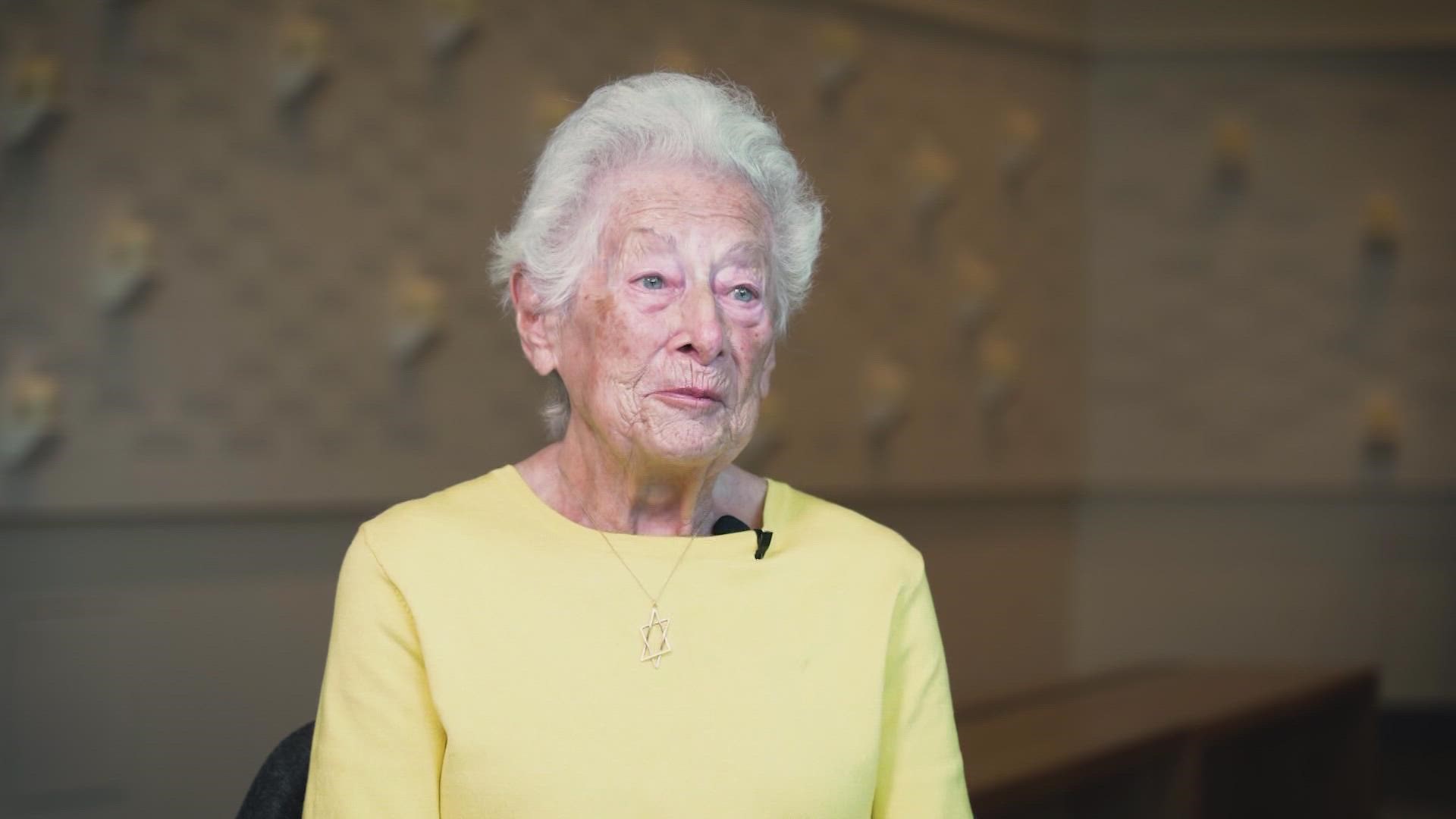DALLAS — It's best to stay out of Magie Furst's way when she's on a mission.
"Hey Debora, let's go!" she shouted at her friend.
Furst hustled her friends down the hallway as they made their way to the auditorium at the Dallas Holocaust and Human Rights Museum, where she was scheduled to speak.
"I hope that it impacts the younger generation. Because some of them don't even know about the Holocaust," she said.
Furst is a Holocaust survivor. She was born in Astheim, Germany in 1929. When she was four, her father died of a heart attack after he was so badly harassed by Nazis.
Had she stayed in Germany, the odds wouldn't have been great. It wasn't easy to get out of the country, but Furst and her brother were ultimately selected as part of the Kindertransport, a rescue mission that moved some 10,000 mostly Jewish children out of Nazi-occupied areas.
They hid and lived with strangers in England.
"They saved our lives," she said. "It's incredible. These people didn't get paid a penny. Some of most of the people that took the children didn't have enough for themselves, but they made do. And they sacrificed."
But Furst learned that kindness is not a characteristic shared by everyone. After the war, antisemitism continued to rear its ugly head.
And still does.
Wednesday, the UN released a report on Holocaust denial on the internet.
It found 49% of public posts on the app 'Telegram' related to the Holocaust... denied or distorted its history. It was 19% on Twitter, 17% on TikTok, 8% on Facebook and 3% on Instagram, according to UNESCO, The United Nations Educational, Scientific, and Cultural Organization.
"It's just unbelievable," Furst said. "I can't get it in my head. That people can be that stupid, can be that ignorant. That's all it is."
But there is hope. The report says that antisemitism and Holocaust misinformation can be fixed with education.
With truth and testimony, like Furst's. It's why she's continued to speak at the museum for 35 years.
When WFAA asked her what her legacy is, she said, "Well, I hope they remember me a little bit."
To learn more about the museum, go here.
To watch taped testimonies from Furst and other Dallas-based survivors, go here.

